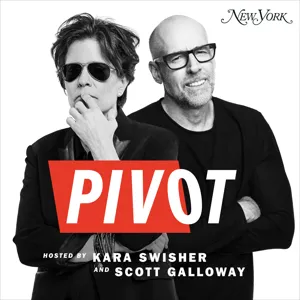Podcast Summary
Collaboration and Simplification: Keys to Success: Atlassian's tools like Jira, Confluence, and Loom promote effective teamwork, while Mercury simplifies financial workflows, allowing businesses to focus on core operations. These strategies lead to success in diverse industries and circumstances.
Effective collaboration and simplification are key to success for both individuals and organizations. Atlassian software, such as Jira, Confluence, and Loom, help teams work together more efficiently, enabling them to accomplish tasks that would be impossible alone. Meanwhile, Mercury simplifies financial workflows, allowing businesses to focus on their core operations. In the news, the S&P 500 remained stable, the dollar gained, and Bitcoin fell below 27,000. Inflation cooled, making it easier for the Fed to pause rate hikes. Banks reported record profits, and Binance is leaving the US to set up operations in the UK following regulatory issues. Icahn Enterprises is under federal investigation, and Airbnb reported record bookings but cautious guidance. Tucker Carlson is launching a show on Twitter, with no commercial relationship confirmed between him and Elon Musk. The importance of collaboration and simplification, as demonstrated by Atlassian and Mercury, can help individuals and organizations thrive in various industries and circumstances.
Consolidation and Fraud Concerns in the Banking Industry: Consolidation in the industry may lead to profits but raises fraud concerns. Justice Department's focus on fraud cases signals accountability, while companies like Airbnb focus on operational improvements to create value.
Consolidation in the banking industry may lead to increased profits, but it also raises concerns about potential fraud and the impact on smaller investors. A recent example is Carl Icahn's alleged Ponzi scheme involving his company, Icahn Enterprises. Icahn, who owns a large percentage of the company's stock, is under scrutiny for paying out high dividends that may not be sustainable. The Justice Department's increased involvement in investigating fraud cases, such as those involving George Santos and former President Trump, signals a shift towards holding individuals and companies accountable for their actions in the business world. Additionally, Airbnb, a major holding for the speaker, is focusing on operational improvements to create shareholder value, and the US remains a business-friendly environment despite some perceptions to the contrary.
WGA Strike: Disputes Over Pay, Transparency, and AI in Scriptwriting: The WGA is on strike due to disagreements over pay, transparency, and the use of AI in scriptwriting. The traditional broadcast model is being challenged by the streaming model, causing financial difficulties for streaming platforms.
The Writers Guild of America (WGA) is currently on strike due to disagreements over pay, transparency, and the use of AI in scriptwriting. The traditional broadcast model, which pays writers royalties based on a show's performance, is being challenged by the streaming model, which pays less for shorter series. The WGA also wants to prevent studios from using AI to write scripts or train models using writers' own work. The strike has already caused disruptions, with late night shows going dark and pressure on studios to produce more content. Some argue that the blame should not be placed solely on studios or CEOs, but also on consumers and their spending habits. The media industry is shifting towards an equity model, where market value growth is prioritized over profits, leading to financial challenges for many streaming platforms.
Media industry shifts lead to economic challenges and writers' strike: The media industry's shift to streaming services impacts ad revenues, causing economic hardships and leading to a writers' strike. The debate around AI scriptwriting raises questions about compensation for creators and the role of technology.
The media industry is undergoing significant changes, particularly in the shift from traditional television to streaming services. This transition has led to a decline in ad revenues and increased pressure on corporations to cut costs. The ongoing writers' strike is a result of these economic challenges, with potential ramifications for future negotiations across the entertainment industry. Additionally, the debate around AI and scriptwriting raises questions about the role of technology and compensation for creators. However, it's important to note that high executive compensation remains a contentious issue, with CEOs earning massive salaries while workers face financial struggles. Ultimately, this situation underscores the need for a more equitable distribution of wealth and resources within the industry.
Shift from traditional media to streaming and free platforms: The writers' strike may have less impact on streaming giants and free platforms, as young audiences increasingly consume content on these platforms and companies like Netflix benefit financially from their existing inventory.
The media landscape has significantly changed in the past decade, leading to a decrease in traditional media spending and a shift towards streaming services and free platforms like TikTok. This change has resulted in a larger pool of creators competing for audiences, many of whom are young adults and teenagers who spend less on traditional media and more on free content. Additionally, companies with large content libraries, such as Netflix, may actually benefit financially from the writers' strike due to their existing inventory and international productions. Ultimately, the writers may find they have less bargaining power in this new economic landscape.
Writers' Strike: Balancing Financial Obligations and Fair Compensation: The writers' strike highlights the tension between studios' financial obligations and writers' demands for fair compensation, particularly regarding streaming residuals. Both sides acknowledge the importance of jobs, but writers fear that low wages could lead to fewer opportunities for top talent.
The ongoing writers' strike in the media industry is a complex issue involving the struggle between writers seeking fair compensation and studios balancing their financial obligations. Streaming residuals, which are essentially royalties, are a significant point of contention as they are much lower than cable residuals. The studios argue that they are creating more jobs, but writers fear that depressing wages for all could lead to fewer jobs for the best writers. There's a parallel here with big tech, which faced similar issues of creating jobs while also struggling to pay fair wages. The writers understand the companies' financial obligations but believe they also have a responsibility to pay a livable wage. However, the streaming companies have been opaque about their data, making it difficult to determine how much writers should be paid based on viewership. Additionally, writers are not overly concerned about AI replacing them, as they see it as a tool for predictability rather than creativity. Overall, the strike is a complex issue with both sides making valid points, and a resolution will likely involve finding a balance between financial viability and fair compensation for writers.
AI's impact on stock prices through narrative: AI mentions during earnings calls can influence stock prices due to investor confidence and narrative, while effective communication tools like Grammarly ensure clarity and productivity.
The use of Artificial Intelligence (AI) in businesses is a hot topic among investors, with many companies emphasizing their implementation of AI during earnings calls. The frequent mention of AI has led to significant investor confidence for some companies, while negatively impacting others. The sensitivity towards AI can be attributed to the fact that stock prices are driven by both numbers and narrative. In the current era, the narrative around a company's use of AI can significantly influence its equity value. The discussion also touched upon the challenges and potential consequences of AI, such as the possibility of a few individuals making substantial wealth while the rest face negative impacts. Additionally, the importance of effective communication, as highlighted by the use of Grammarly, was emphasized to ensure clarity and productivity in the workplace.
Shaping Narratives for Valuation: PR and Communications Professionals' Role in Earnings Calls: PR and communications pros help shape company narratives during earnings calls, using intentional keywords. Industry giants like Apple and Amazon use measured messaging, while others under pressure may resort to aggressive tactics. Separating substance from hype is crucial.
In today's market, with many companies going public without significant profitability, the narrative becomes crucial for valuation. PR and communications professionals play a significant role in shaping these narratives, often working closely with CEOs to craft messages that resonate with investors. During earnings calls, the frequency and intentionality of certain keywords, such as "AI," can offer insights into a company's strategy. However, not all companies are equally successful in executing this strategy. For instance, industry giants like Apple and Amazon, with their strong investor credibility, can afford to be more measured and less reliant on buzzwords. Conversely, companies under pressure to perform may resort to more aggressive messaging. Additionally, the tech landscape is constantly evolving, with new trends and technologies, like AI, sometimes overshadowing established players. The challenge lies in separating the substance from the hype.
Microsoft's Investment in Emerging Technologies: AI and Nuclear Fusion: Microsoft is investing in AI and nuclear fusion, viewing them as enduring technologies with the potential to keep the company competitive and innovative. Satya Nadella's leadership and partnerships have transformed Microsoft into a respected tech giant, while Bill Gates and Sam Altman's involvement add credibility.
Microsoft is making significant moves in emerging technologies, such as AI and nuclear fusion, which could help the company stay competitive and innovative in the tech industry. The academic research interest in AI resembles that of mobile GPS, suggesting that it's a more enduring technology. Microsoft's investment in nuclear fusion, despite the technology not yet producing electricity, shows the company's belief in its potential. Satya Nadella's leadership has transformed Microsoft's reputation from a sluggish competitor to a respected and innovative tech giant. Bill Gates and Sam Altman's involvement in these emerging technologies may have influenced Microsoft's decisions. The company's history of establishing strong partnerships and its significant revenue base from large corporations also contribute to its ongoing success.
Microsoft's strategic investment in renewable energy: Microsoft's investment in a renewable energy company could expand its distribution network, boost credibility, and offer favorable terms.
Microsoft's investment in a renewable energy company may not be a typical financial agreement, but rather a strategic move to boost its distribution network and credibility. The deal's specifics are unclear, but Microsoft's involvement could bring significant benefits, such as favorable terms and increased exposure. Additionally, the speaker expresses excitement about the potential of nuclear fusion as a clean energy source and predicts a strong earnings week for companies like Walmart, Target, Home Depot, Alibaba, and Baidu. However, the ongoing writers' strike in Hollywood is predicted to be detrimental for the riders, as the studios hold most of the leverage in the negotiations.






